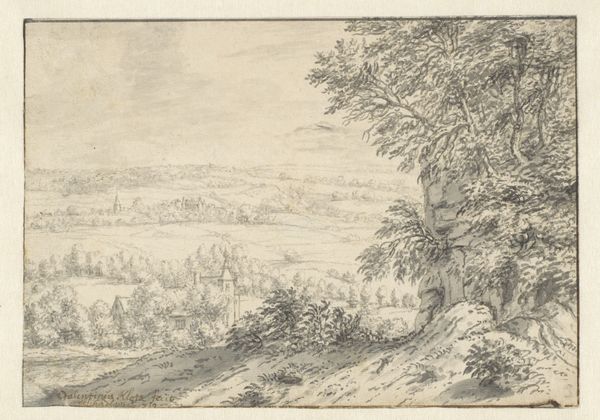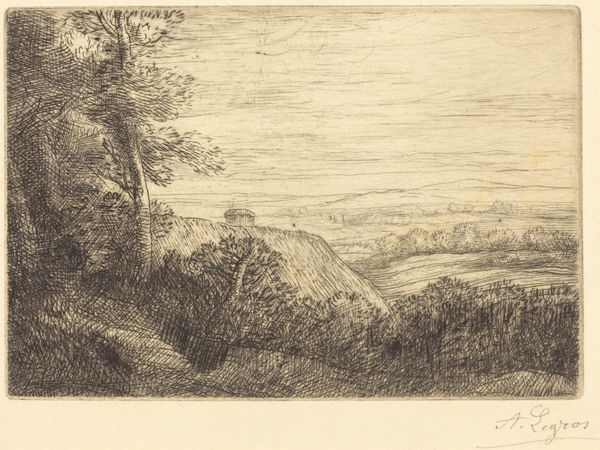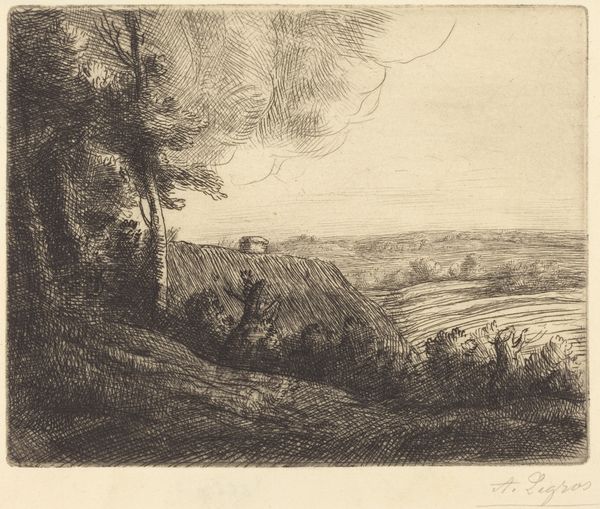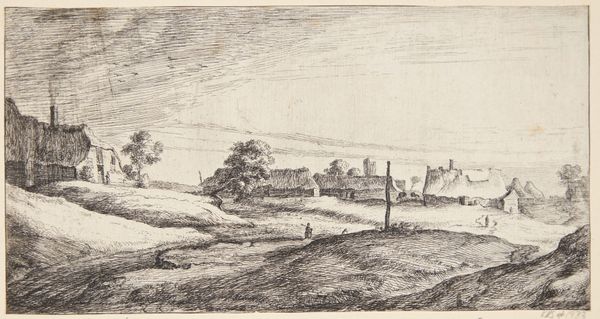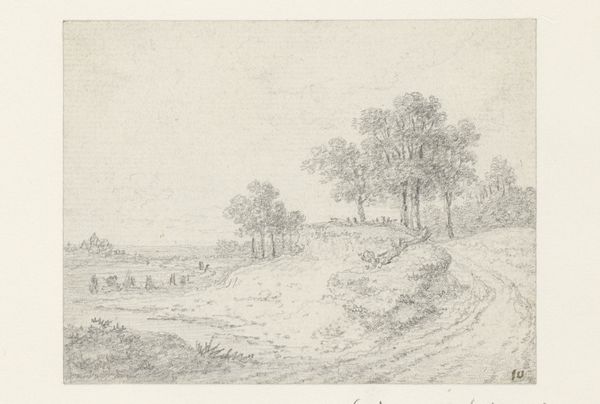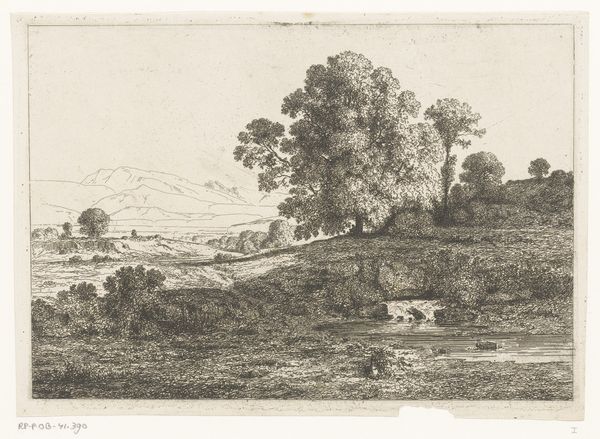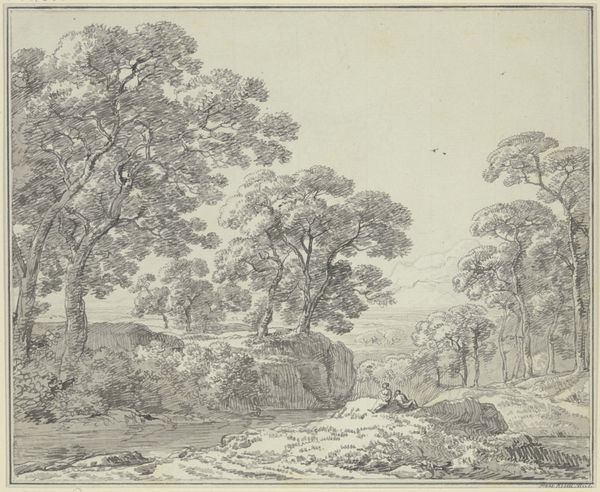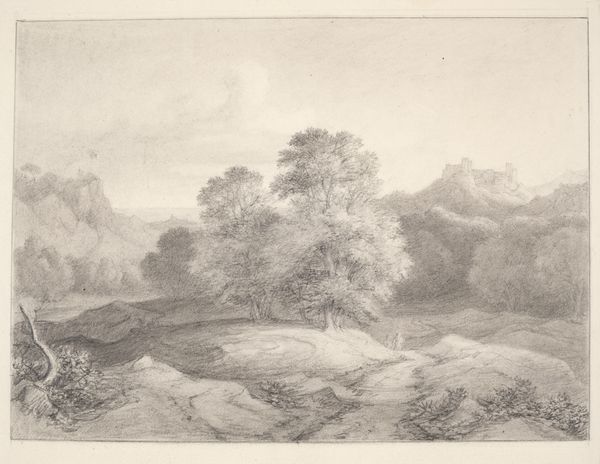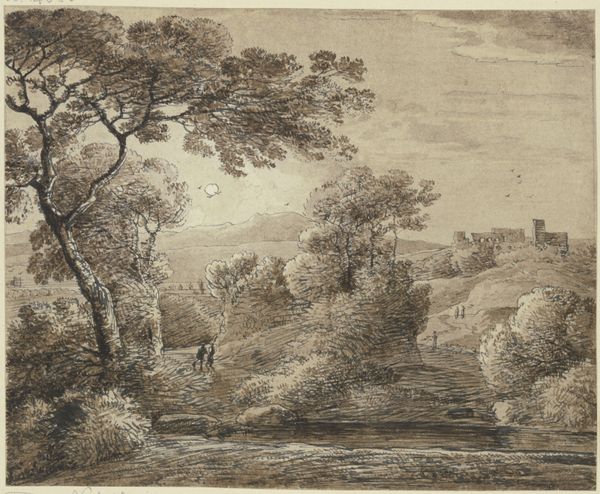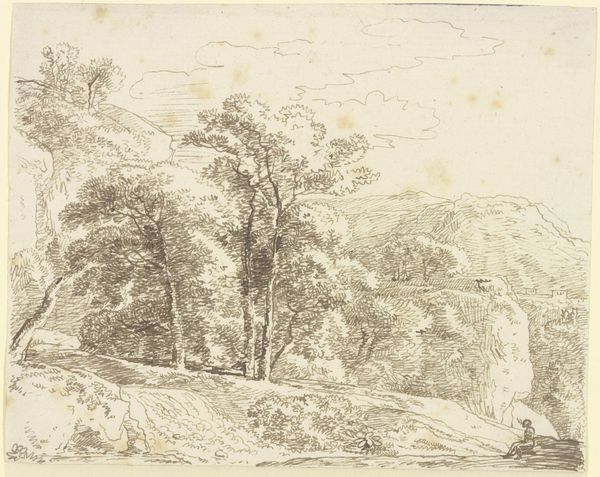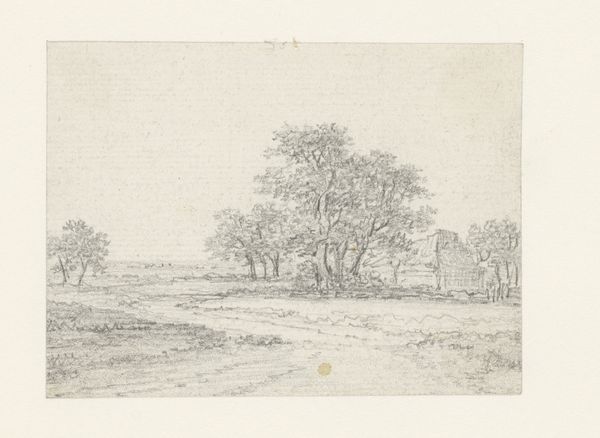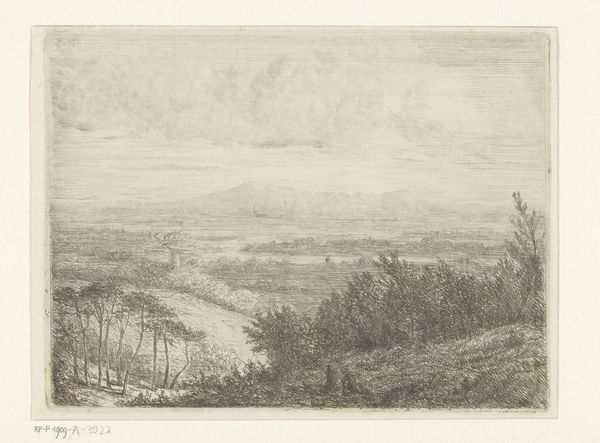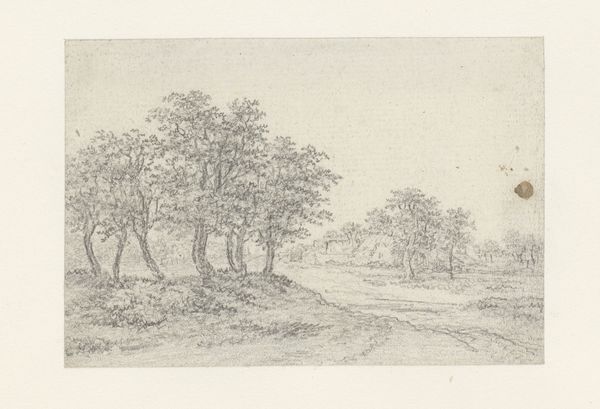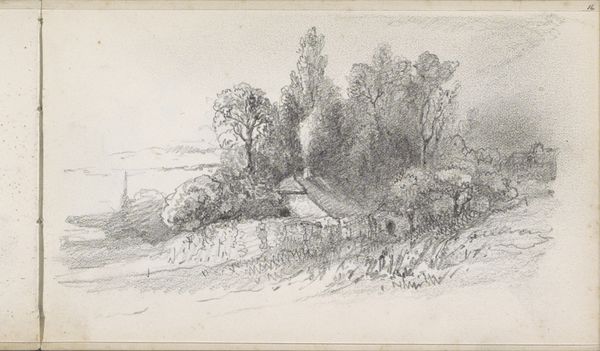
Wooded Pond with Bathing Figures, Vista of River Bridge, and Farms n.d.
0:00
0:00
drawing, print, etching, paper, ink, pencil, graphite, pen
#
drawing
# print
#
etching
#
pencil sketch
#
landscape
#
etching
#
paper
#
ink
#
pencil drawing
#
pencil
#
graphite
#
pen
Dimensions: 334 × 480 mm
Copyright: Public Domain
Wilhelm von Kobell created this delicate drawing, 'Wooded Pond with Bathing Figures, Vista of River Bridge, and Farms,' using graphite on paper. Born in Mannheim, Germany, Kobell's lifetime saw profound shifts in European society and politics, including the rise and fall of Napoleon, and the social restructuring after the French Revolution. Here, Kobell seems to both embrace and subtly critique the aesthetic values of his time. On one hand, the scene is a peaceful, almost idyllic landscape, but there's also a certain detachment. The figures bathing seem unconcerned with the landscape, while the landscape seems almost to ignore the figures. What does this withholding suggest about the relationship of the personal to the political? Is this a statement about the rise of the individual within the vastness of societal change? What might this calculated aesthetic distance reveal about the artist's feelings about societal and political transformation? Perhaps the artist is using the landscape to ask us what it means to be human at a time of great change?
Comments
No comments
Be the first to comment and join the conversation on the ultimate creative platform.
